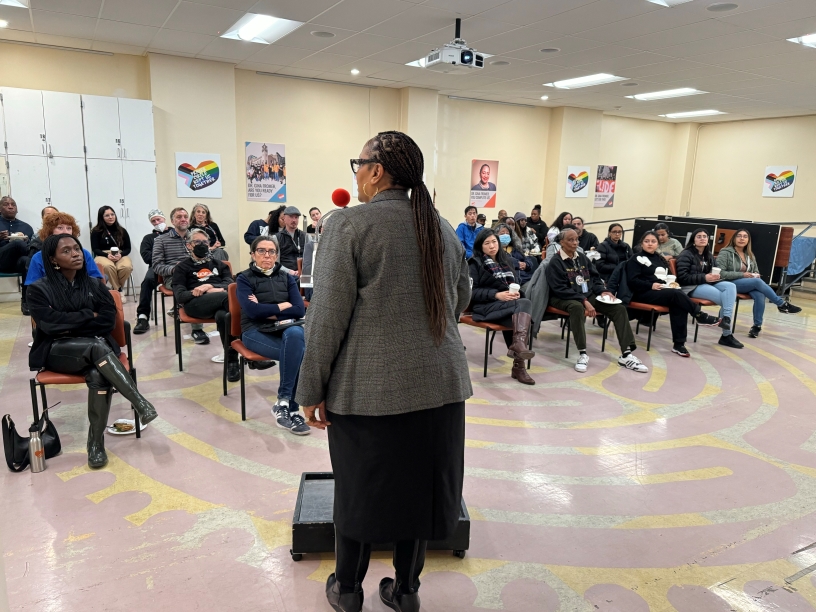
GLIDE staff were treated to a special presentation by President & CEO Dr. Gina Fromer inside Freedom Hall this week where she spoke about her research into Black women who emerged from poverty and transitioned into executive positions.
Black women are significantly underrepresented in corporate America. 67% of executive leadership positions are held by White men, compared to 1.4% by Black women. This is no accident, according to Dr. Fromer, who emphasized that Black children living in poverty grow up to be adults living in poverty 92.7% of the time.
Given the low percentage of Black women in executive leadership positions, Dr. Fromer’s research studied two central questions:
1) How do Black women perceive the factors that may have contributed to their emergence from poverty into executive positions?
2) How do Black women perceive the role of resilience in emerging from poverty into executive positions?
Dr. Fromer’s research aimed to shed light on the value of practitioners who work in leadership development on antipoverty strategies. It also provided insights for leadership development and what childhood factors affect opportunities and outcomes for Black girls living in poverty.
As part of her research, Dr. Fromer interviewed nine Black women who were born into poverty and later were able to grow professionally and move into executive leadership positions.
Dr. Fromer concluded that Black girls are resilient and aspire to lead but many are mired in inter-generational poverty, and few can break out of their economic conditions.
Five key themes emerged from Dr. Fromer’s research for how to improve the prospects of black girls raised in poverty. These include experiencing a sense of community, the building of strong family ties, awareness of economic status, Black mothers and fathers who can show greater elevated self-esteem, confidence, and an appreciation of self along with a drive for change.
Black girls and Black women share a common bond of resiliency, and to work on anti-poverty strategies means devising ways of helping Black girls overcome their own bleak circumstances.
This means showcasing examples of Black women who have overcome their own economic challenges to attain roles of executive leadership. Dr. Fromer’s research outlines several recommendations, including:
- Investigate further the factors Black executives leaders believe contributed to their leadership journeys
- Further examination of the impact of Black role models on the leadership development of Black girls
- The use of focus groups with Black women executives to share their stories
In the context of individual resilience theory, Dr. Fromer’s research concluded that Black girls growing up in poverty who felt a sense of safety in their communities, were exposed to Black teachers, and remembered positive aspects of their childhoods were able to move forward toward positive leadership outcomes as adults.
